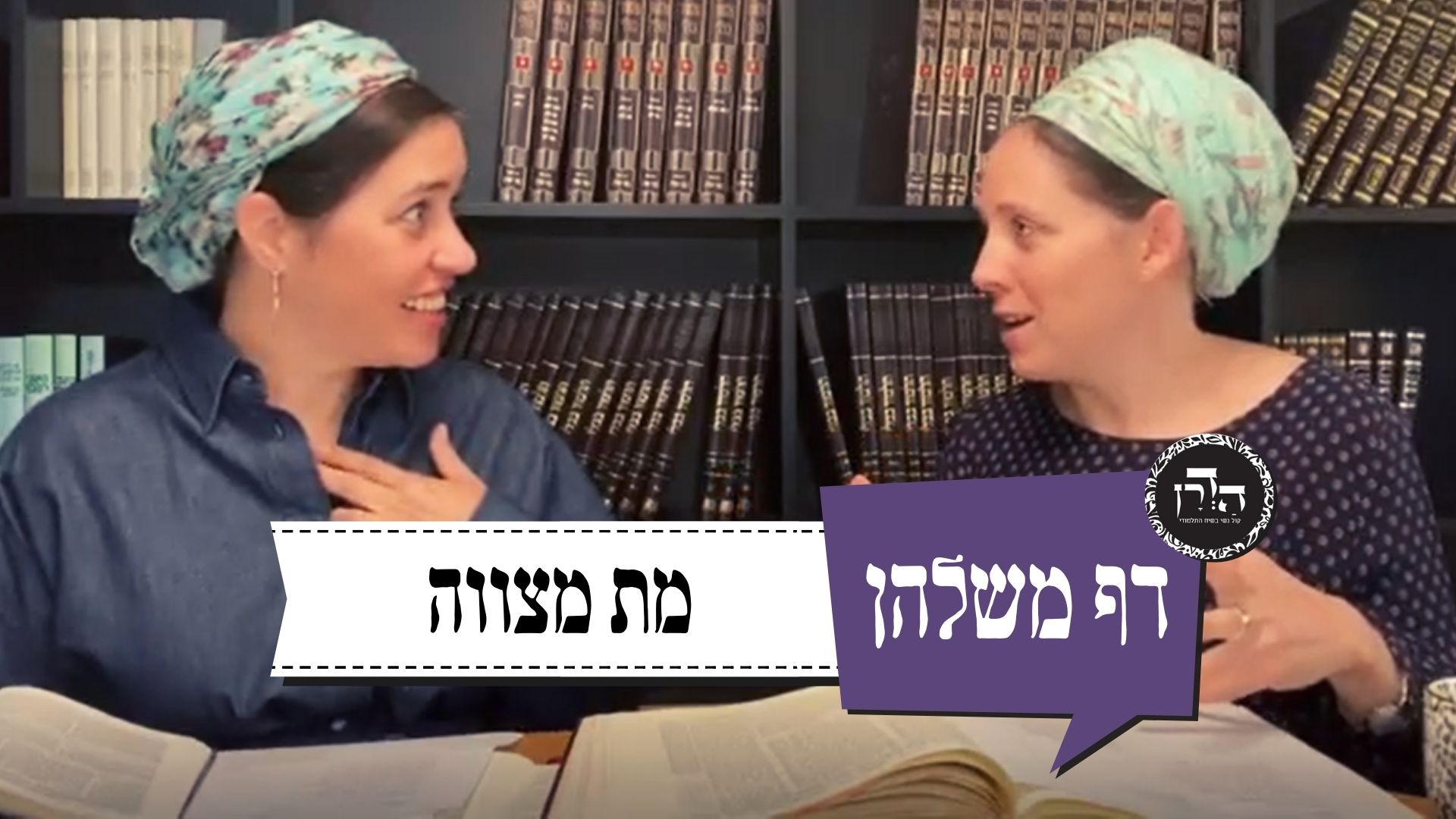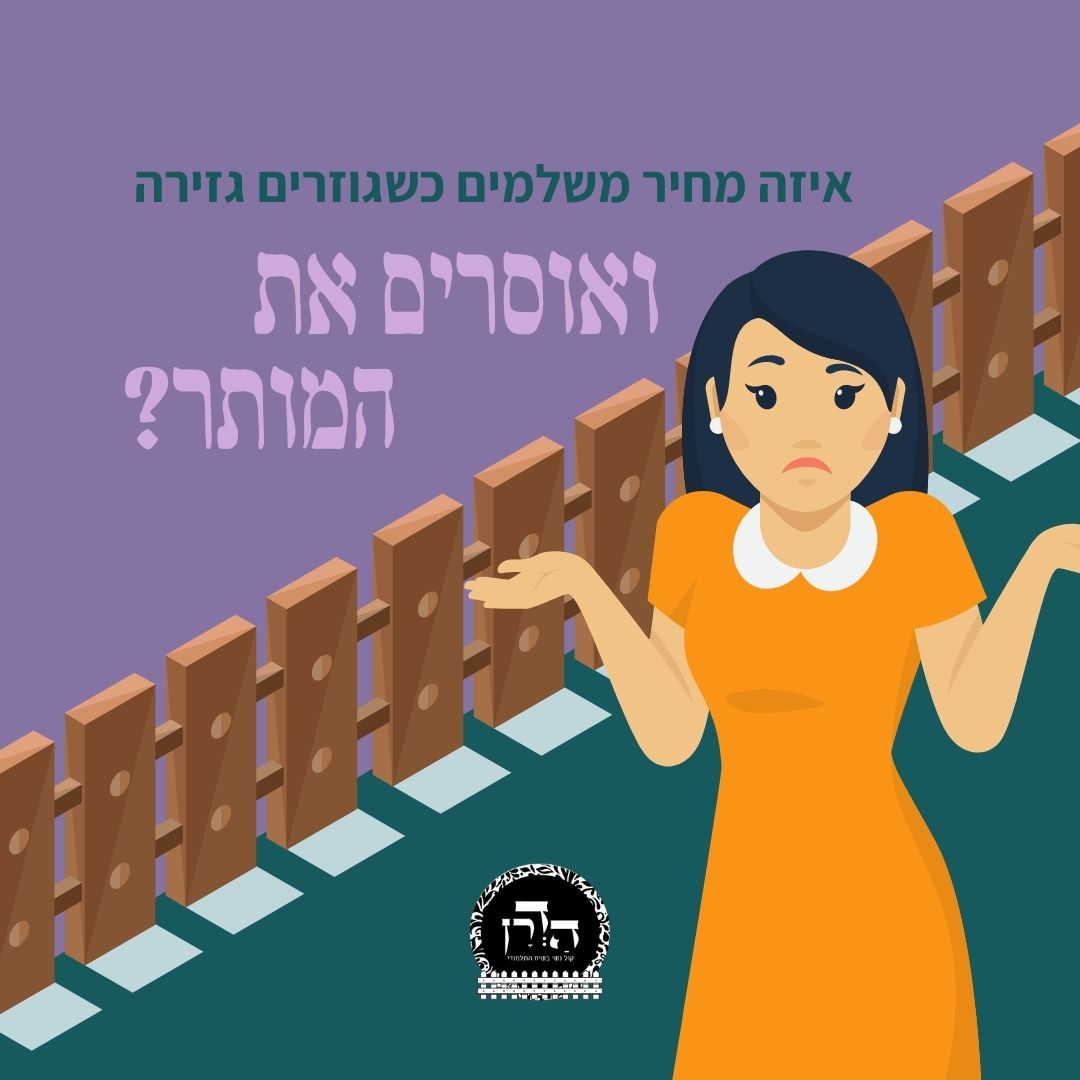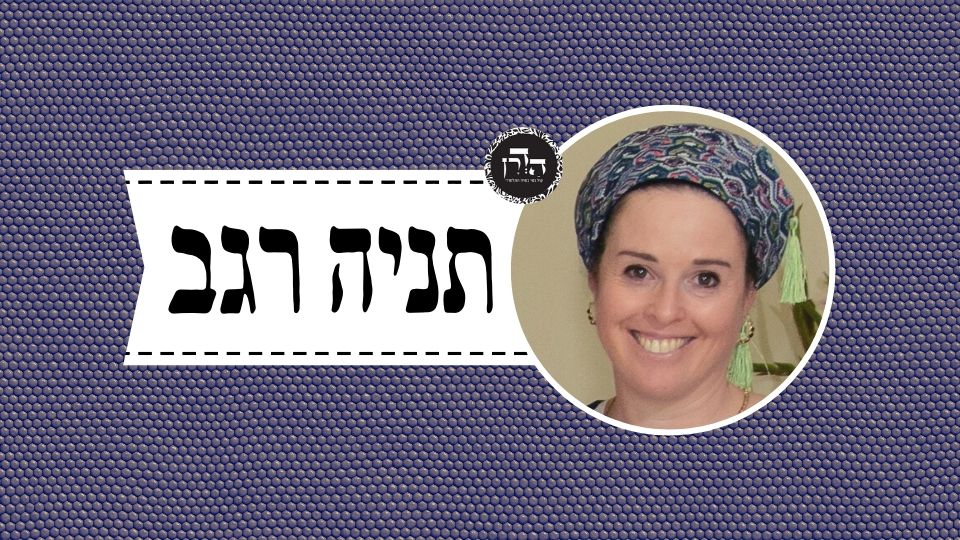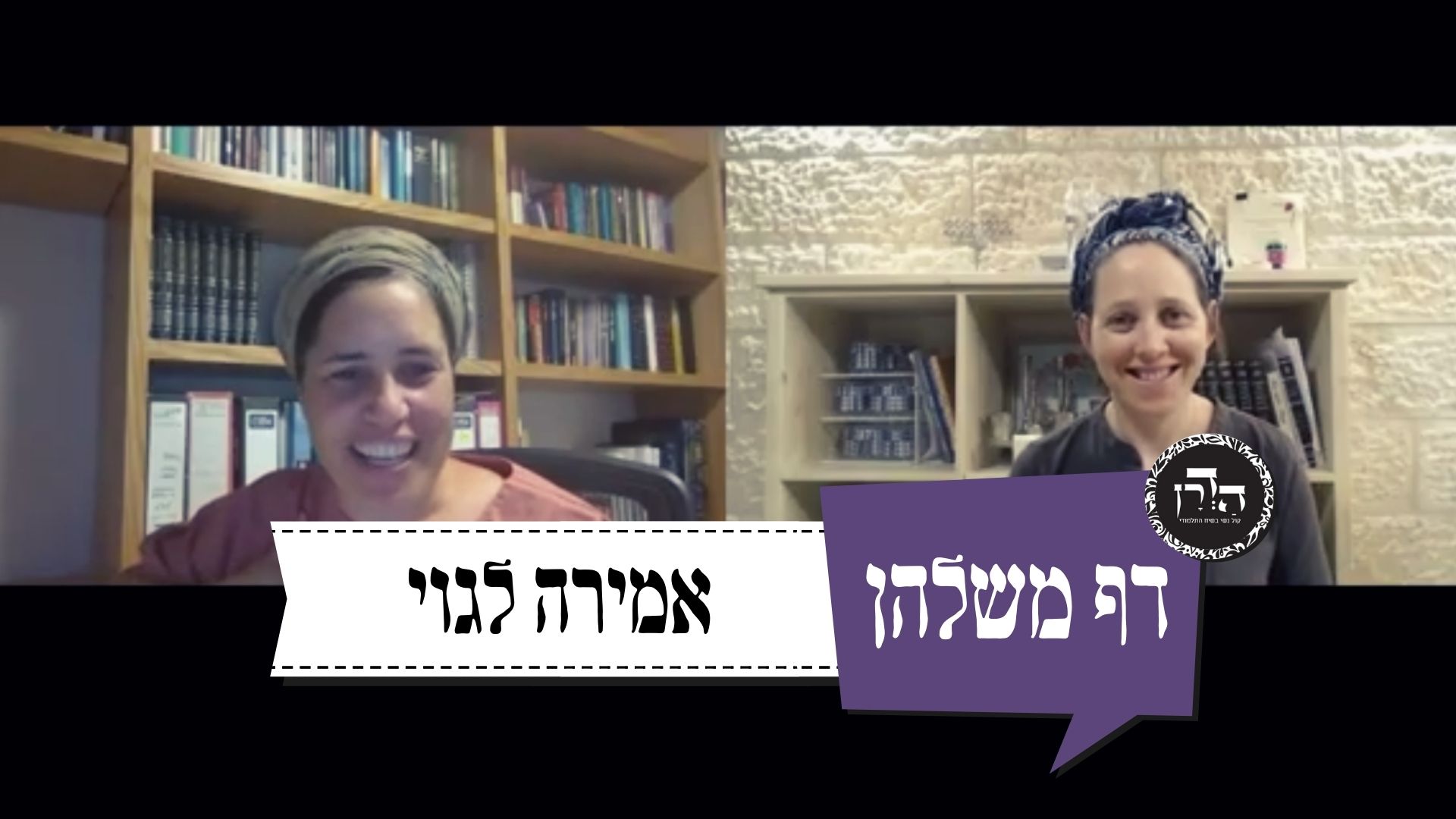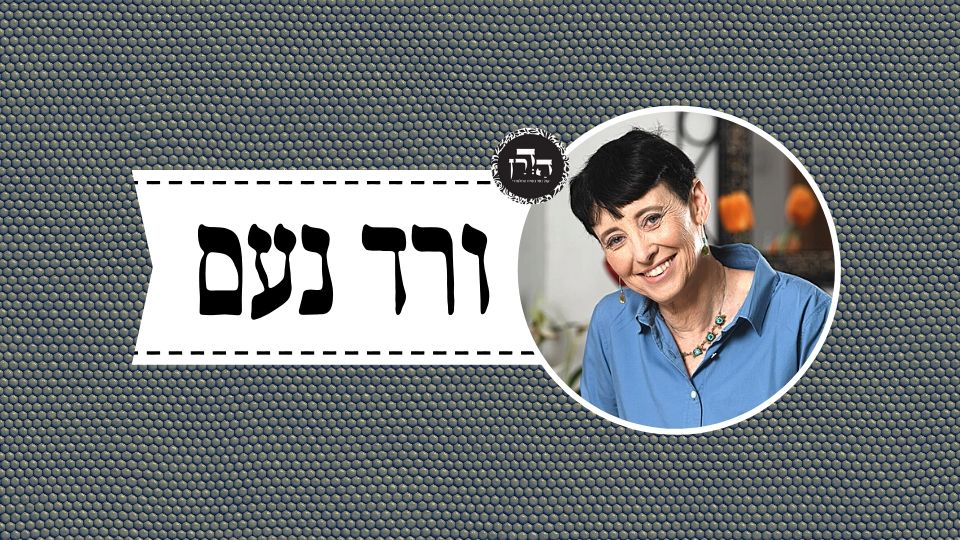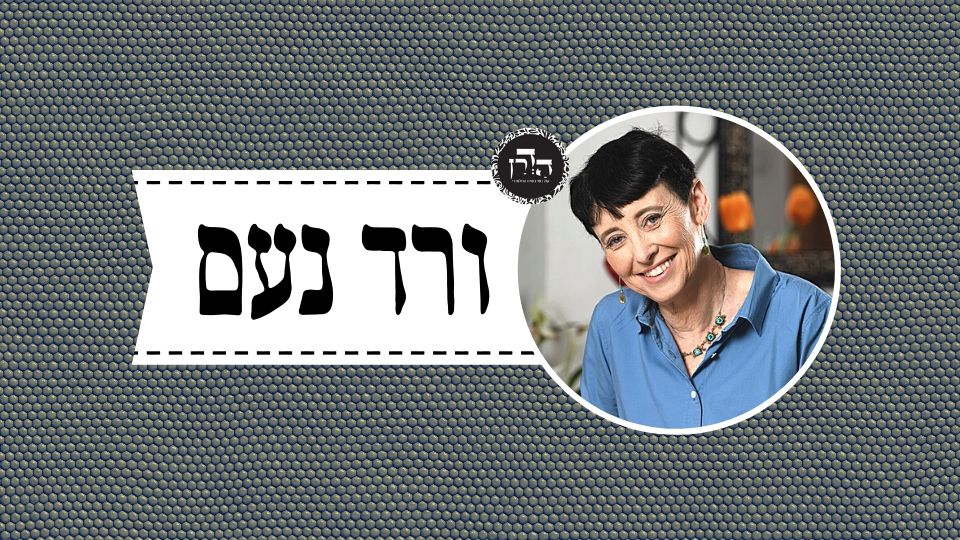שבת קא
רַבִּי יְהוּדָה אוֹמֵר: עֲמוּקָּה עֲשָׂרָה, וְאֵין גְּבוֹהָה עֲשָׂרָה — מִטַּלְטְלִין מִתּוֹכָהּ לַיָּם, אֲבָל לֹא מִן הַיָּם לְתוֹכָהּ. מַאי שְׁנָא מִן הַיָּם לְתוֹכָהּ דְּלָא — דְּקָא מְטַלְטְלִין מִכַּרְמְלִית לִרְשׁוּת הַיָּחִיד, מִתּוֹכָהּ לַיָּם — נָמֵי קָמְטַלְטֵל מֵרְשׁוּת הַיָּחִיד לְכַרְמְלִית! אֶלָּא לָאו אַחוּדָּהּ. וּשְׁמַע מִינַּהּ כֹּחוֹ בְּכַרְמְלִית לָא גְּזַרוּ. שְׁמַע מִינַּהּ.
Rabbi Yehuda says: If the interior of the boat is ten handbreadths deep and it is not ten handbreadths above the surface of the water, one may carry from it into the sea, but not from the sea into it. The Gemara asks: What is different about carrying from the sea into the ship that one may not do so? Is it because in doing so one is carrying from a karmelit into the private domain? In carrying from the ship into the sea, one is also carrying from the private domain into a karmelit. Rather, is it not that from the ship to the sea is permitted because one throws the object onto the edge of the boat and it falls into the sea on its own, and learn from it that the Sages did not issue a decree prohibiting an action caused indirectly by one’s power in a karmelit? The Gemara summarizes: Indeed, learn from it that this is so.
אָמַר רַב הוּנָא: הָנֵי בִּיצִיָּאתָא דְמֵישָׁן אֵין מְטַלְטְלִין בָּהֶן אֶלָּא בְּאַרְבַּע [אַמּוֹת]. וְלָא אֲמַרַן אֶלָּא שֶׁאֵין בְּפָחוֹת מִשְּׁלֹשָׁה אַרְבָּעָה, אֲבָל יֵשׁ בְּפָחוֹת מִשְּׁלֹשָׁה אַרְבָּעָה — לֵית לַן בַּהּ. וְאִי מְלָנְהוּ קְנֵי וְאוּרְבָּנֵי — לֵית לַן בַּהּ.
Rav Huna said: With regard to those small boats of Meishan, which are wide on top and narrow at the bottom, one may carry in them only within four cubits. Because they are less than four handbreadths wide at the bottom, they are not a private domain. And we only said this halakha in a case where the width of the boat does not reach four handbreadths less than three handbreadths from the bottom of the boat. However, if the width of the boat reaches four handbreadths less than three handbreadths from the bottom, we do not have this halakha, as those are considered full-fledged partitions which create a private domain. And, similarly, if one fills the bottom of the boat with reeds and thin willow branches up to the point where the boat reaches four handbreadths, we do not have this halakha. If there are ten handbreadths above the point where the boat reaches four handbreadths, it is a private domain.
מַתְקֵיף לַהּ רַב נַחְמָן, וְלֵימָא גּוּד אַחֵית מְחִיצָתָא! מִי לָא תַּנְיָא, רַבִּי יוֹסֵי בְּרַבִּי יְהוּדָה אוֹמֵר: נָעַץ קָנֶה בִּרְשׁוּת הָרַבִּים וּבְרֹאשׁוֹ טְרַסְקָל, וְזָרַק וְנָח עַל גַּבָּיו — חַיָּיב. אַלְמָא אָמְרִינַן גּוּד אַחֵית מְחִיצָתָא. הָכָא נָמֵי נֵימָא גּוּד אַחֵית מְחִיצָתָא!
Rav Naḥman strongly objects to this: And let us say: Lower the partition. The upper part of the raft is sufficiently wide and its partitions are sufficiently high; why not consider it as if the partitions of the boat descend from the top of the raft in a straight line to the bottom? Was it not taught in a baraita that Rabbi Yosei, son of Rabbi Yehuda, says: One who stuck a stick into the ground in the public domain, and hung a basket atop it that is four by four handbreadths wide, and threw an object from the public domain and it landed upon it, he is liable, like one who carried an object into a private domain? Apparently, we say: Lower the partition of the basket and treat it as if it reaches the ground, creating a column that is considered a private domain. Here, too, let us say: Lower the partition.
מַתְקֵיף לַהּ רַב יוֹסֵף: וְלָא שְׁמִיעָא לְהוּ לְהָא דְּאָמַר רַב יְהוּדָה אָמַר רַב, וּמָטוּ בָּהּ מִשּׁוּם רַבִּי חִיָּיא, וְתָנֵי עֲלַהּ: וַחֲכָמִים פּוֹטְרִין. אֲמַר לֵיהּ אַבָּיֵי: וְאַתְּ לָא תִּסְבְּרָא? וְהָתַנְיָא: עַמּוּד בִּרְשׁוּת הָרַבִּים גָּבוֹהַּ עֲשָׂרָה וְרָחָב אַרְבָּעָה, וְאֵין בְּעִיקָּרוֹ אַרְבָּעָה, וְיֵשׁ בַּקָּצָר שֶׁלּוֹ שְׁלֹשָׁה, וְזָרַק וְנָח עַל גַּבָּיו — חַיָּיב. אַלְמָא אָמְרִינַן: גּוּד אַחֵית מְחִיצָתָא. הָכָא נָמֵי: גּוּד אַחֵית מְחִיצָתָא.
Rav Yosef strongly objects to this statement of Rav Naḥman: And did they not hear that which Rav Yehuda said that Rav said, and there are those who determined that this halakha was stated in the name of Rabbi Ḥiyya: And it was taught in a baraita: And the Rabbis deem one exempt in the case of a reed stuck in the ground of a public domain? Apparently, the opinion of Rabbi Yosei, son of Rabbi Yehuda, is an individual opinion and was not accepted as halakha. Abaye said to him: And do you not hold the principle of extending partitions? Was it not taught in a baraita: With regard to a column in the public domain that is ten handbreadths high and four handbreadths wide, and its base is not four handbreadths wide, and its narrowest point is more than three handbreadths high; and if one threw an object from the public domain and it came to rest atop the column, he is liable? Apparently, we say: Lower the partition. Since the column’s uppermost section is sufficiently wide, its partitions are considered as if they extend to the ground. Here, too, say: Lower the partition.
מִידֵּי אִירְיָא?! הָתָם הָוְיָא לַהּ מְחִיצָה שֶׁהַגְּדָיִים בּוֹקְעִין בָּהּ. הָכָא הָוְיָא לַהּ מְחִיצָה שֶׁאֵין הַגְּדָיִים בּוֹקְעִין בָּהּ. אֲמַר לֵיהּ רַב אַחָא בְּרֵיהּ דְּרַב אַחָא לְרַב אָשֵׁי: גַּבֵּי סְפִינָה נָמֵי, הָא אִיכָּא בְּקִיעַת דָּגִים! אֲמַר לֵיהּ: בְּקִיעַת דָּגִים לֹא שְׁמָהּ בְּקִיעָה. וּמְנָא תֵּימְרָא? — דִּבְעָא מִינֵּיהּ רַבִּי טַבְלָא מֵרַב: מְחִיצָה תְּלוּיָה מַהוּ שֶׁתַּתִּיר בְּחוּרְבָּה? וַאֲמַר לֵיהּ: אֵין מְחִיצָה תְּלוּיָה מַתֶּרֶת
The Gemara asks: Are the case of the basket and the case of the boat comparable? There, in the case of the basket, it is a partition that goats pass through. A partition that does not serve as a barrier is not considered a partition. Here, it is a partition that goats do not pass through. It is considered a partition. Rav Aḥa, son of Rav Aḥa, said to Rav Ashi: In the case of a boat, too, there is the passage of fish, as they can swim through the lowered partitions of the boat. He said to him: Passage of fish is not considered passage because it is not visible. And from where do you say that this is so? As Rabbi Tavla raised a dilemma before Ravin: With regard to a hanging partition, what is the ruling in terms of it permitting one to carry in a ruin when part of the building’s walls are still intact, and they are still considered partitions? Ravin said to him: A hanging partition only permits one to carry
אֶלָּא בְּמַיִם, קַל הוּא שֶׁהֵקֵילּוּ חֲכָמִים בְּמַיִם. וְאַמַּאי, הָא אִיכָּא בְּקִיעַת דָּגִים? אֶלָּא שְׁמַע מִינַּהּ — בְּקִיעַת דָּגִים לֹא שְׁמָהּ בְּקִיעָה.
in water. It is a leniency the Sages instituted in water but not in other circumstances. And why were they lenient with regard to a hanging partition in water? Isn’t there the passage of fish? Rather, learn from this that the passage of fish is not considered passage.
סְפִינוֹת קְשׁוּרוֹת כּוּ׳. פְּשִׁיטָא! אָמַר רָבָא: לֹא נִצְרְכָה אֶלָּא לְהַתִּיר בִּיצִּית שֶׁבֵּינֵיהֶן.
We learned in the mishna: If boats are tied together, one may carry an object from one to the other on Shabbat. The Gemara asks: That is obvious, since these boats are like a single domain. Rava said: This mishna was necessary only to permit carrying from one boat to another via a small boat that is between them.
אֲמַר לֵיהּ רַב סָפְרָא: מֹשֶׁה, שַׁפִּיר קָאָמְרַתְּ?! ״מְטַלְטְלִין מִזּוֹ לָזוֹ״ תְּנַן! אֶלָּא אָמַר רַב סָפְרָא: לֹא נִצְרְכָה אֶלָּא לְעָרֵב וּלְטַלְטֵל מִזּוֹ לָזוֹ, וְכִדְתַנְיָא: סְפִינוֹת קְשׁוּרוֹת זוֹ בָּזוֹ — מְעָרְבִין וּמְטַלְטְלִין מִזּוֹ לָזוֹ. נִפְסְקוּ — נֶאֶסְרוּ. חָזְרוּ וְנִקְשְׁרוּ, בֵּין שׁוֹגְגִין וּבֵין מְזִידִין בֵּין אֲנוּסִין בֵּין מוּטְעִין — חָזְרוּ לְהֶיתֵּרָן הָרִאשׁוֹן.
Rav Safra said to him: You, who are as great in this generation as Moses, did you speak well? We learned in the mishna that one may carry only from one to the other, not via a small boat. Rather, Rav Safra said: The mishna was only necessary to obligate one to place an eiruv, a joining of courtyards, between the two boats. Since the boats belong to different people, they must be joined to form a single domain in order to permit carrying from one to the other, as it was taught in a baraita: With regard to boats tied to one another, one places an eiruv and carries from one to the other. If the ties between them were severed, the people on the boats are prohibited to carry from one to the other. If they were then retied, whether unwittingly, i.e., the one who retied them forgot that it was Shabbat, whether intentionally, whether due to circumstances beyond one’s control, whether mistakenly, the boats are restored to their original permitted status.
וְכֵן מַחְצָלוֹת הַפְּרוּסוֹת לִרְשׁוּת הָרַבִּים — מְעָרְבִין וּמְטַלְטְלִין מִזּוֹ לָזוֹ. נִגְלְלוּ — נֶאְסְרוּ. חָזְרוּ וְנִפְרְשׂוּ, בֵּין שׁוֹגְגִין בֵּין מְזִידִין בֵּין אֲנוּסִין וּבֵין מוּטְעִין — חָזְרוּ לְהֶיתֵּרָן הָרִאשׁוֹן, שֶׁכׇּל מְחִיצָה שֶׁנַּעֲשֵׂת בַּשַּׁבָּת, בֵּין בְּשׁוֹגֵג בֵּין בְּמֵזִיד — שְׁמָהּ מְחִיצָה.
And similarly, in the case of mats that are unfurled to create a partition between two people and the public domain, one places an eiruv and carries from one to the other. If the mats were furled, the people on the boats are prohibited to carry from one to the other. If the mats were then unfurled again, whether unwittingly, whether intentionally, whether due to circumstances beyond one’s control, whether mistakenly, they are restored to their original permitted status. That is because any partition that is established on Shabbat, whether unwittingly, whether intentionally, is considered a partition.
אִינִי?! וְהָאָמַר רַב נַחְמָן: לֹא שָׁנוּ אֶלָּא לִזְרוֹק, אֲבָל לְטַלְטֵל אָסוּר! כִּי אִיתְּמַר דְּרַב נַחְמָן — אַמֵּזִיד אִיתְּמַר.
The Gemara asks: Is that so? Didn’t Rav Naḥman say: They only taught the principle that a partition established on Shabbat is considered a partition with regard to throwing. In that case, a partition creates a domain unto itself, and one who throws an object into it from another domain is liable. However, with regard to carrying within that domain, it is certainly prohibited. The Gemara answers: When that statement of Rav Naḥman was stated, it was stated with regard to an act performed intentionally. One who intentionally establishes a partition is penalized and is not permitted to benefit from it. In principle, though, that partition is considered a full-fledged partition.
אָמַר שְׁמוּאֵל: וַאֲפִילּוּ קְשׁוּרוֹת בְּחוּט הַסַּרְבָּל. הֵיכִי דָמֵי? אִי דְּיָכוֹל לְהַעֲמִידָן — פְּשִׁיטָא. אִי דְּאֵין יָכוֹל לְהַעֲמִידָן — אַמַּאי?
Shmuel said: The halakha that one may carry from one ship to another if they are tied together applies even if they were tied with a string used to close the neckline of a cloak. The Gemara asks: What are the circumstances? If the string is capable of holding the ships together, it is obvious that carrying between the ships is permitted as they are tied together. However, if the string is incapable of holding them, why is it permitted?
לְעוֹלָם דְּיָכוֹל לְהַעֲמִידָן. וּשְׁמוּאֵל לְאַפּוֹקֵי מִדְּנַפְשֵׁיהּ קָאָתֵי. דִּתְנַן: קְשָׁרָהּ בְּדָבָר הַמַּעֲמִידָהּ — מֵבִיא לָהּ טוּמְאָה. בְּדָבָר שֶׁאֵין מַעֲמִידָהּ — אֵין מֵבִיא לָהּ טוּמְאָה. וְאָמַר שְׁמוּאֵל: וְהוּא שֶׁקְּשׁוּרָה בְּשַׁלְשֶׁלֶת שֶׁל בַּרְזֶל.
The Gemara explains: Actually, it refers to a string that can hold them, and Shmuel said this to exclude this case from his own statement. As we learned in a mishna: If one tied a ship with an item capable of holding it and the end of that item was in a tent with a corpse, it transmits impurity to the ship. And if one tied it with something that is incapable of holding it, it does not transmit impurity to the ship. And Shmuel said: When the mishna refers to an item capable of holding it, it is referring to a case where it is tied with an iron chain. It was necessary for Shmuel to establish that although with regard to ritual impurity the halakha applies only to an iron chain, with regard to Shabbat the halakha applies to any item capable of holding the ships together.
לְעִנְיַן טוּמְאָה הוּא, דִּכְתִיב: ״בַּחֲלַל חֶרֶב״ — חֶרֶב הֲרֵי הוּא כְּחָלָל. (אִין) אֲבָל לְעִנְיַן שַׁבָּת, כֵּיוָן דְּיָכוֹל לְהַעֲמִידָהּ, הֶיכֵּר בְּעָלְמָא הוּא — אֲפִילּוּ בְּחוּט הַסַּרְבָּל.
The reason that the halakha is different with regard to impurity is as it is written: “And whoever touches in the open field one slain by sword, or one who dies by himself, or a bone of a man, or a grave, shall be unclean seven days” (Numbers 19:16). The Sages derived from the phrase: One slain by sword that a sword is like one slain, i.e., a corpse. A metal instrument that comes into contact with a corpse assumes the same level of ritual impurity as the corpse itself, the ultimate primary source of ritual impurity. Therefore, it is only an iron chain in a tent with a corpse in it that can render a boat tied to the other end a primary source of ritual impurity. A string made of other materials cannot. However, with regard to Shabbat, since it is capable of holding it and it is a mere distinctive sign that is necessary, even the string of a cloak is sufficient.







